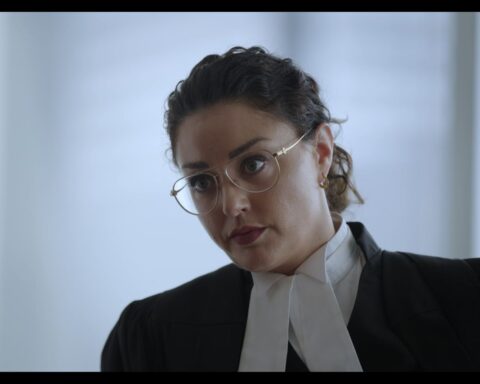Two Trains Runnin’
(USA, 80 min.)
Dir. Sam Pollard
The number of good American music docs that combine the songs of the South with the nation’s turbulent history of racism are too numerous to count. Add Sam Pollard’s Two Trains Runnin’ to the list, however, since it smartly intertwines the two historical narratives and articulates the arts’ ability to articulate the soul of a nation. Pollard (Sammy Davis, Jr.: I’ve Gotta Be Me) mixes interviews, archival images, animation, and musical performances to create a piece of living history. Like many other music docs, Two Trains Runnin’ sees in the power of music the ability to unite people of different races and cultures.
Two Trains Runnin’ is a bit like Muscle Shoals meets Searching for Sugarman as it offers three parallel narratives that converge on a night that changed American history. Two of the threads feature die-hard music lovers. The film tells how the trios of young men, unaware of the other group’s quest, hopped in their cars and ventured south to Mississippi in search of music icons. In one car rode the fans of Skip James, while the fans of Son House sat tight in the other. Both groups were young men eager to meet and thank the blues singers who introduced them to soulful tunes that spoke with a funky energy far more powerful than the folk music on mainstream radio. The cars, like the quest for Sixto Rodriguez, seek elusive, almost mythic figures with an aim to bring the power of song to a wider audience.
In the third car rode three young men: James Chaney, Andrew Goodman, and Michael Schwerner. The former was Black and from the South, while the latter two were whites from New York who came to Mississippi for a project called Freedom Summer. The campaign, a Civil Rights initiative to increase the Black vote, had the boys driving around the hazy, violent streets of Mississippi mobilizing voters and encouraging them to exercise and demand their democratic right.
Two Trains Runnin’ offers interviews with the passengers of the first two cars. Pollard collects their narratives in chats that overlap and bleed one history into another. The speakers recall this musical summer in easygoing anecdotal yarns that evoke the laid-back charm of the blues. Their stories, infused with music fans’ trivia, knowledge, and deep appreciation for the melodies, rhythms and histories of blues musicians, are quite the nostalgic ride.
The audience, of course, can’t hear from the men in the third car since they were all murdered by the Ku Klux Klan one fateful summer night. Pollard instead offers animated sequences that illustrate their journey while adjacent friends, family members, historians, and other talking heads explain the significance of their road trip. They also unpack the simmering tension between Blacks and whites that year as the Supreme Court votes to rule segregation illegal and give due credit to the Civil Rights workers who put themselves at risk for initiatives such as Freedom Summer.
The similarities of the storylines, however, often cause confusion. Since Pollard interviews the members of each car individually, rather than as groups, and since they’ve all aged by over 50 years from the archival photographs, it’s hard to remember who is who and which blues singer they’re respectively chasing. The stories share their significance, however, so Two Trains Runnin’ compensates in thematic clarity what it misses in narrative obscurity. Narration by Common also helps one monitor the players and the greater cultural backdrop of their quests.
In addition to the interviews, Pollard injects another chorus of voices to the mix: those of contemporary blues singers. Two Trains Runnin’ features great musical performances by Gary Clark, Jr., who sings and strums on the guitar to evoke the music about which the interviewees passionately speak. The music wafts through the film and mythologizes James, House, and other unsung voices in blues. More significantly, the voice of this younger singer carries the artistry and freedom embodied in the three narratives and gives a soulful nod of thanks to the members of each car for the culture for which he fought. The presence of some voices and the absence of others are very effective when the trains collide.
Two Trains Runnin’ plays at Hot Docs Ted Rogers Cinema on January 28 as part of the Doc Soup Sundays series
p=.











